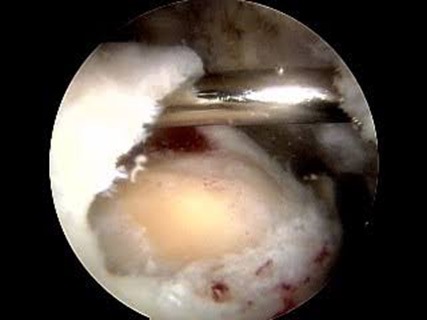Treatment
Not All Rotator Cuff tears require surgical repair!!!
Acute rotator cuff tear
Symptoms can be a sudden tearing sensation, followed by severe pain shooting from the upper shoulder area (both in front and in back) and down the arm toward the elbow. There is decreased range of motion of the shoulder because of pain and muscle spasm. Acute pain from bleeding and muscle spasm: This may resolve in a few days. Large tears may cause the inability to lift the arm (raise it away from the body) due to the significant pain and loss of muscle power.
Chronic rotator cuff tear
As explained previously this could be asymptomatic. Pain usually is worse at night and may interfere with sleep. Gradual weakness and decreased shoulder motion develops as the pain worsens. There is a decrease in the ability to use the arm away from the body. This allows the arm to be used for most activities, but the affected person is unable to use the injured arm for activities that entail lifting the arm as high as or higher than the shoulder, and to the front or side.
Surgery may be considered if:
- Your rotator cuff injury is very severe.
- You have severe pain and loss of shoulder function that hasn’t responded to other conservative treatments.
- If you have shoulder weakness caused by a complete tear, especially when the rotator cuff is otherwise healthy.
Surgery typically is used to repair a torn rotator cuff in a healthy young person, because good results are more likely if there is little or no evidence of other problems.
People who have advanced rotator cuff disorders and tendons that are severely degenerated, flimsy and fibrous are usually not amenable to surgical repair. Surgery may successfully repair the tear, but it can’t repair all the damage caused by age or degeneration.
If surgery isn’t done right away, repair of a large tear may not be as successful. But it still usually relieves pain and restores enough strength for you to do routine, non-strenuous activities.
After surgery, a program of physical rehabilitation (rehab) is very important. You may not do as well after surgery if you aren’t willing or able to commit to completing a difficult physical rehab program.
Large Tear of Supraspinatus





